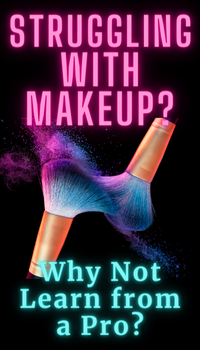Cis Heteros Only Please!
The following article attempts to address the claims that freedom of religion allows business people the right to refuse service to LGBTQ people based on religious beliefs. Since, so far as I am aware, the largest number of these cases have involved Christians refusing to sell to or serve members of the LGBTQ community, I have approached the issue from that perspective. Since Christians believe that the Bible is accurate in what is presents, I have adopted that position as well. What I hope to show is that the Bible does not prohibit business transactions between Christians and those they consider as “sinners”; and that the claims of such people are actually based more on their own prejudice, which if followed to its logical conclusion would create chaos.
By now most of us have heard or read of cases involving Christians refusing to provide service to same sex couples. Three that I am familiar with involve a baker who refused to bake a wedding cake for a same sex wedding, a photographer who refused to shoot a same sex wedding, and a calligrapher and printer who refused to create wedding invitations for a same sex wedding. In all three cases the people involved refused on the grounds that same sex relationships were sinful and that providing the service would violate their religious beliefs; because if they provided the service they would be endorsing or condoning or participating in what they believe is sin. (The Bible defines sin as breaking God’s law and/or rebellion against God.)
When I look at the Gospel I find events like the account of the Canaanite woman who asked Jesus to heal her daughter (Matthew 15.22-28), his healing of the of the man in the Decapolis (Mark 5.1-20), his healing of the Centurion’s servant (Luke 7.1-10), his healing of the official’s son (John 4.43-54). In all these cases the person making the request was not a follower of Jesus. In addition the first three would have been considered pagans as they were not even followers of Judaism. Yet in each case it did not stop Jesus from ministering to them. He could have simply refused to answer these people. He could have demanded that they first repent and become believers and followers as a requirement to his granting their request. Yet that is not what he did. Instead he granted their request without any requirement whatsoever.
There is also the example Abraham’s alliance with his neighbors to rescue Lot (Genesis 14.13), of Israel trading with Tyre, a city-state that was not Jewish (e.g., 1 Kings 5) as well as other areas (e.g. 1 Kings 10.15).
My point is that in the historical context, all of these people would have been considered as non-believers, people who practiced other religions and worshipped other gods. In other words, sinners. And yet ministry was done, business transactions executed and the Bible does not condemn these actions.
Suppose a non-kosher keeping Jewish couple came to the baker and asked them to bake a cake for their daughter’s Bat-Mitzvah. Would they refuse because baking the cake would imply they supported Judaism? What if a Hindu couple asked the photographer to shoot their wedding? Would they refuse because shooting the wedding would imply they supported Hinduism? What if an unmarried couple came in with their children and asked the printer to make invitations to celebrate the couple’s having been together for 15 years? Would they refuse because the couple was unmarried and printing the invitations would imply they supported cohabitation and extramarital sex? Additionally, do these people refuse everyone who they believe is a sinner, whose use of their service might be construed as condoning sin — or just same sex couples? Because if it is just same sex couples then they are essentially saying they are okay with other actions they consider sinful — just not same sex relationships. And that, aside from being hypocritical, is discrimination, i.e., they are not applying their own purported standard equally.
During this campaign cycle I have watched a Christian pastor speaking at a political rally openly state that the Bible mandates that homosexual people are to be stoned to death and that that mandate is still applicable today. I heard a Christian radio host claim that God is going to unleash a nuclear holocaust on American “because we are a nation of homosexuals and lesbians and atheists and God-haters,” and another claim that if one looks close enough at some members of the LGBTQ community one will see their reptilian features — evidence that they are in league with the serpent (i.e., the devil). A popular Mormon talk show host claimed God must punish American for rejecting Ted Cruz. I know that not all Christians believe this kind of codswallop. However, those people need to understand that when they remain silent in the face of such claptrap they become participants in it by default.
Many of these people also hold the belief that America was founded as a Christian nation and therefore the Bible has authority over the laws of the country. Thus they are doubly justified in their position that LGBTQ people are sinners and that they should be allowed to discriminate against us. The truth is that our founders borrowed ideas from the Bible as well as other sources when seeking to form the nation. And while they could have chosen to establish the Bible as the supreme authority they instead chose to create a constitutional republic and not a Judeo-Christian theocracy. They even wrote into the Constitution a prohibition against any form of religious test as a qualification for “any Office or public Trust under the United States” (Article VI); in other words one cannot be required to prove a particular religious belief or lack thereof in order to hold a government office or serve in the government. (I suggest that Article VI at least signals an intent by the founders to maintain some degree of separation between any specific religion and the government.)
When you enter into business and open your doors to the public you are entering into an agreement with the public to provide goods or services to anyone who legally purchases them. It does not matter what your religious beliefs are or theirs, or if either of you even have religious beliefs. When you enter into employment with a company or other entity, e.g., government, you agree to perform assigned duties in accordance with established polices, mission statements, etc. You do not have the right to refuse service to someone because you disapprove of their beliefs, how they dress, where they live, who they live with, how they worship or do not worship, what they eat, etc., etc., etc. The idea that one could legally refuse service to a customer based on race, sexual orientation, gender identity, etc., stems from years past when such “rights” were codified in law. Whites could legally refuse service to blacks because of race laws. Homosexuals could be denied service because homosexuality was a crime. Trans women could be denied service because “cross dressing” was illegal. These laws also stigmatized or marked these minority groups. When these types of laws were subsequently struck down or repealed then the legal basis for denying service to these populations was eliminated. Those who now seek to deny goods/service know they must have a legal basis for doing so and so claim that freedom of religion allows them to discriminate against the members of the LGBTQ community. In other words, they are claiming that their “right” to refuse goods or service is part of the expression of their religion and therefore legal and allowed under the First Amendment.
But if this is the case, where does it end? Can a Christian surgeon refuse to treat a trans woman because they believe we are sinners? Can a Christian teacher refuse to teach the children of a same sex couple or a trans child? Could a Muslim doctor refuse to treat a Christian patient because they are an “infidel”? Can white supremacists (who often claim biblical support for their racist beliefs) who own businesses refuse to serve non-white customers? Can they burn crosses on people’s lawns? Can Catholics refuse to serve Protestants? Can Protestants refuse to serve Catholics? Can people be denied immigration based on their religion?
No! That way lies madness and anarchy. Such actions are neither biblical nor constitutional. They are expressions of hate.
Let me close by quoting Louise Melling of the ACLU. Writing in the UCLA Law Review (“Will We Sanction Discrimination?: Can “Heterosexuals Only” Be Among the Signs of Today?” 60 UCLA L. REV. DISC. 248 (2013)), she puts it thus, “While the constitution protects the right of individuals to worship and have diverse beliefs, the right to religious exercise does not extend to conduct that would threaten the rights, welfare, or well being of others.”
She goes on to say, “The question these cases present is not whether we should let society continue to discriminate against LGBT people or women. It is whether we should grant institutions and individuals with devout religious objections exemptions from societal mandates against discrimination. It all goes back to the core principles: What are we trying to achieve with mandates to end discrimination? What harm are we addressing? Simply stated, we are striving to end the second-class status we have reified in the law for certain classes of people. And in doing so, we are seeking to foster equality. We are seeking to eliminate the stigma and harm of having the door closed in your face. A patchwork of fairness and dignity is not equality.”
Category: Legal, Transgender Opinion











from another Emily–I continue to attempt learn why the Catholic church is opposed to TG people. Faulty as they may be -at least they have some points they make re: homosexuality which I was taught during my Catholic education but none of this pertains to being transgender.Can someone please try to pin them down? (lots of luck)
Hi Emily,
I am not Catholic but I believe their doctrine regarding trans people is that we suffer from mental illness where we only think there is disconnect between our physical body and our internal knowledge of our gender. Catholic Online cites work by Dr Paul McHugh a psychiatrist and Catholic who was instrumental in closing down the Johns Hopkins gender clinic as supporting this hypothesis. (This view is contrary to the positions of both the American Psychiatric Association and American Psychology Association.) I believe the church itself teaches that the “body and soul, is a unity” and therefore no real or actual difference can exist between one’s biologic sex and their internal gender as the two are one. Thus any alleged difference between the two is merely a mistaken perception and does not reflect reality. Further, they consider gender confirmation surgery to be “mutilation” that creates “imitation organs which will never have the genuineness and functioning of authentic organs”. These all knowing experts completely dismiss the evidence reported by trans people by simply asserting that we are basically delusional. They have a splendid circular quality to their reasoning.
My own take is that the Catholic Church, like many Evangelical churches, feel threatened by the possibility that transgenderism is a real condition because they see it as undermining or negating the Bible. What it really does is undermines and negates some of their cherished interpretations of the Bible which they unfortunately consider the same as the Bible. They see our existence as a threat to their understanding of reality and something that must be explained away. Basically, they are afraid.
Hope this answers your question.
Emily